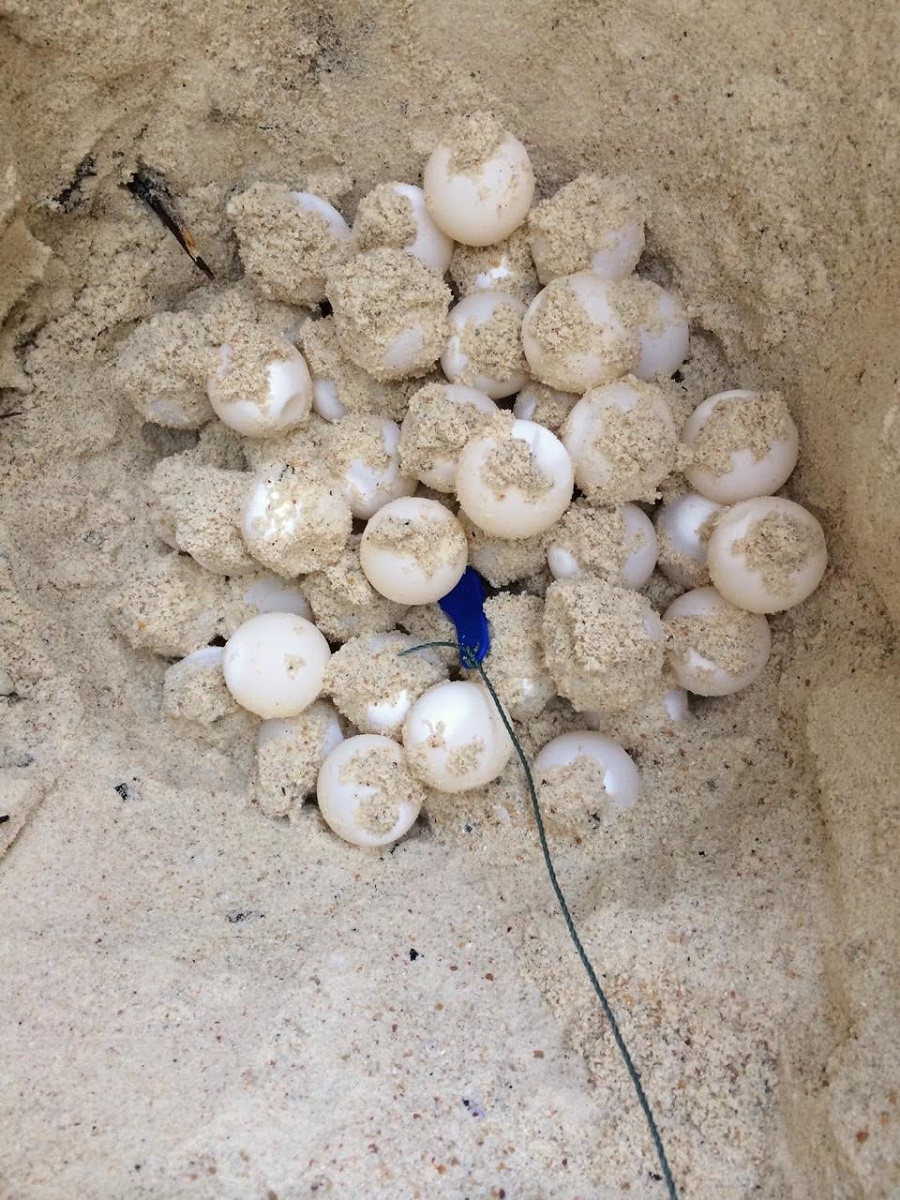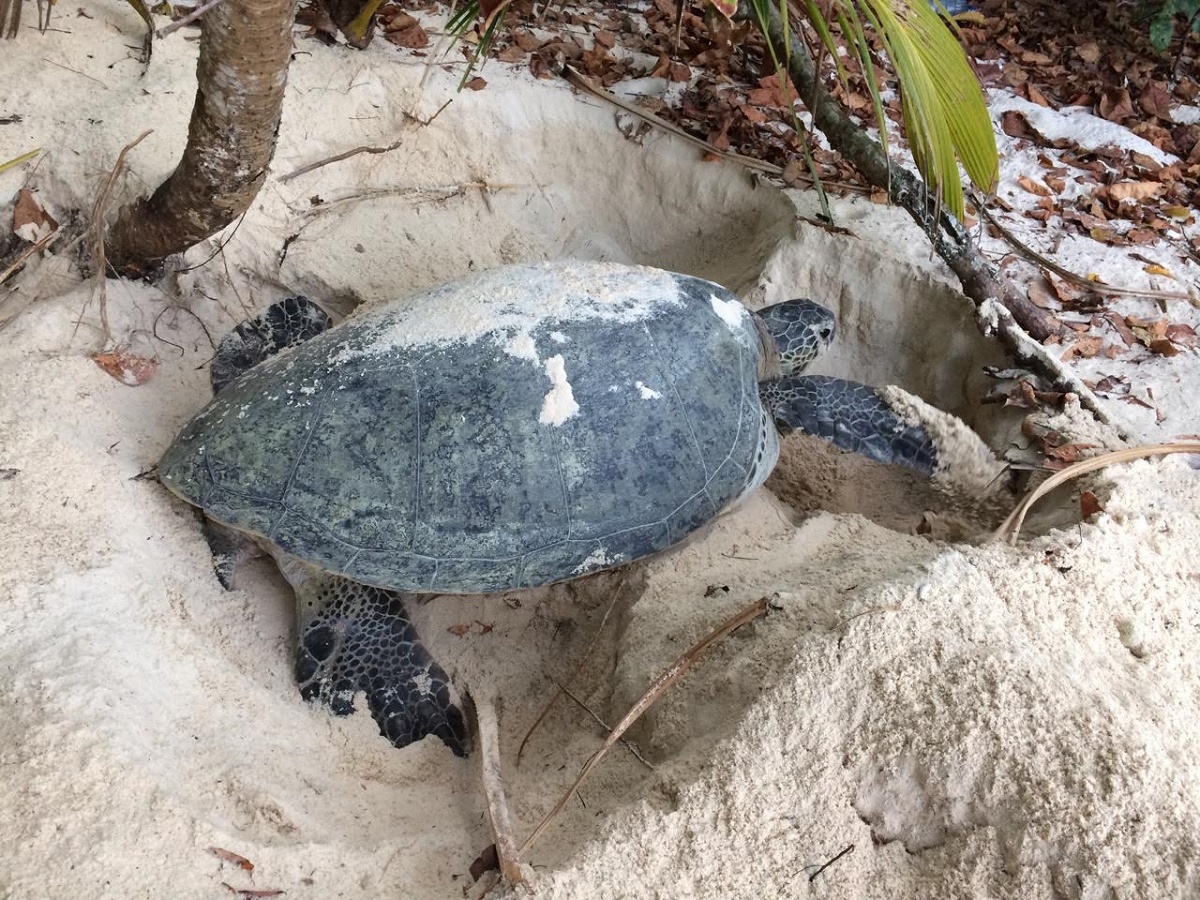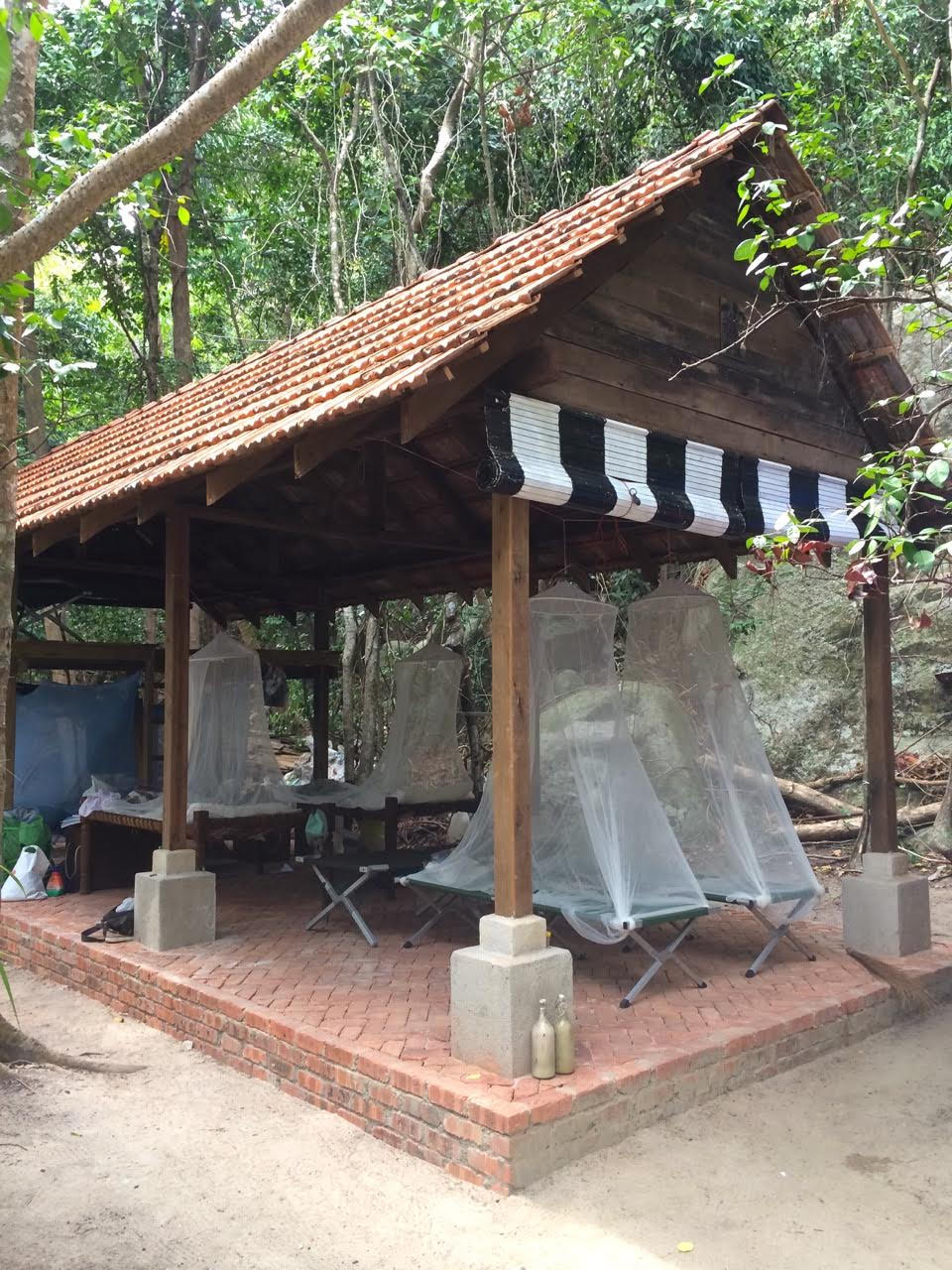 A Green Turtle nest with a temperature data-logger, used by volunteers to determine the sex of the hatchlings. – Pic courtesy of Raphe van Zevenbergen, July 24, 2015.Back in school, most of us would have learnt about how sea turtles remain an endangered species. But truth be told, I had never quite felt drawn to the conservation cause of these lovely animals, as I told myself I was “clean”. I had never seen a turtle and I don't eat turtle eggs.
A Green Turtle nest with a temperature data-logger, used by volunteers to determine the sex of the hatchlings. – Pic courtesy of Raphe van Zevenbergen, July 24, 2015.Back in school, most of us would have learnt about how sea turtles remain an endangered species. But truth be told, I had never quite felt drawn to the conservation cause of these lovely animals, as I told myself I was “clean”. I had never seen a turtle and I don't eat turtle eggs.
It was not until my little escape to the beautiful and pristine Lang Tengah Island, Terengganu, that my eyes were opened to how each of us have a part to play that was greater than just refrain.
I met Raphe Van Zevenbergen, a Wildlife Conservation graduate who chanced upon a turtle watch project when in George Town, Penang, midway through his tour in South East Asia. He is currently the co-founder of Lang Tengah Turtle Watch along with Hayati Mokhtar, a woman with a heart for nature who also owns a plot of land in Lang Tengah.
“Not consuming turtle eggs is a good start, but learning to care for and help the conservation of turtles will in turn provide protection for a myriad of other species that aren’t in the spotlight in the same way turtles are,” said Zevenbergen.
The duo are now working with WWF conservation specialists, Terengganu state government officials and volunteers from Malaysia and international education institutions to safeguard the turtles, making Lang Tengah a safe haven for turtles to nest.
In groups of twos or threes, the Lang Tengah Turtle Watchers patrol Turtle Bay (where the Turtle Watch Camp is based) and Lang Sari Beach hourly every night. The patrollers carry about red torch lights and stroll under the moon-lit beach, attentive to any movements on the sand.
 The rare sight of a Green Turtle nesting at dawn on Turtle Bay. – Pic courtesy of Raphe van Zevenbergen, July 24, 2015.One of the reasons why they need to patrol is because they need to collect and relocate the turtle eggs before the poachers come and dig them up.
The rare sight of a Green Turtle nesting at dawn on Turtle Bay. – Pic courtesy of Raphe van Zevenbergen, July 24, 2015.One of the reasons why they need to patrol is because they need to collect and relocate the turtle eggs before the poachers come and dig them up.
“We know the poachers personally, and our paths cross most days,” said Zevenbergen.
“We often chat to each other, and they are open in saying that if we aren’t there, they will take the eggs.
“That’s why our volunteers are so important, because they help patrol the beaches at night which maintains our presence on the island and is, in itself, a deterrent.”
Volunteers use red rays because turtles can’t see the red spectrum, an important piece of information as these sensitive animals are very adverse to light. They do not lay eggs on beaches that have any light.
When a turtle nests on the beach, the volunteers also tag the turtles using metal flipper tags provided by the Department of Fisheries. It is inserted on the anterior side of the front flippers and has a unique identification code.
Their efforts have resulted in the preservation of four nests of the critically endangered Hawksbill on Turtle Bay. Combined, they accounted for 11.5 per cent of the Hawksbill eggs in Terengganu for the season, a relatively large proportion for such a small beach.
The group actively calls all Malaysians and foreigners to join them in discovering more about these gentle sea animals, and in their efforts to preserve their future.
 Sleeping squatters where the volunteers can have a good rest after a long night patrolling. – Pic courtesy of Raphe van Zevenbergen, July 24, 2015.Zevenbergen promises that the experience will be life-changing.
Sleeping squatters where the volunteers can have a good rest after a long night patrolling. – Pic courtesy of Raphe van Zevenbergen, July 24, 2015.Zevenbergen promises that the experience will be life-changing.
“There’s a gratifying feeling you get when the hatchlings race down to the sea, knowing that you’ve given them this chance at life. Had we not started this programme, all the turtle eggs on the island would have gone to the market,” he told The Malaysian Insider.
For those who are interested, do not hesitate to contact Raphe van Zevenbergen at 012-325 9554 or email [email protected] for more information about their work or to sign up as a volunteer.
“Turtles are delightfully majestic creatures that have existed almost unchanged for 100 million years. They are undeniably iconic animals,” said Zevenbergen when asked to describe his passion for turtle conservation.
“Are we happy to accept that if we don’t take action now, soon the only place Malaysian turtles will exist is on a 20 ringgit note?” – July 24, 2015.

Comments
Please refrain from nicknames or comments of a racist, sexist, personal, vulgar or derogatory nature, or you may risk being blocked from commenting in our website. We encourage commenters to use their real names as their username. As comments are moderated, they may not appear immediately or even on the same day you posted them. We also reserve the right to delete off-topic comments